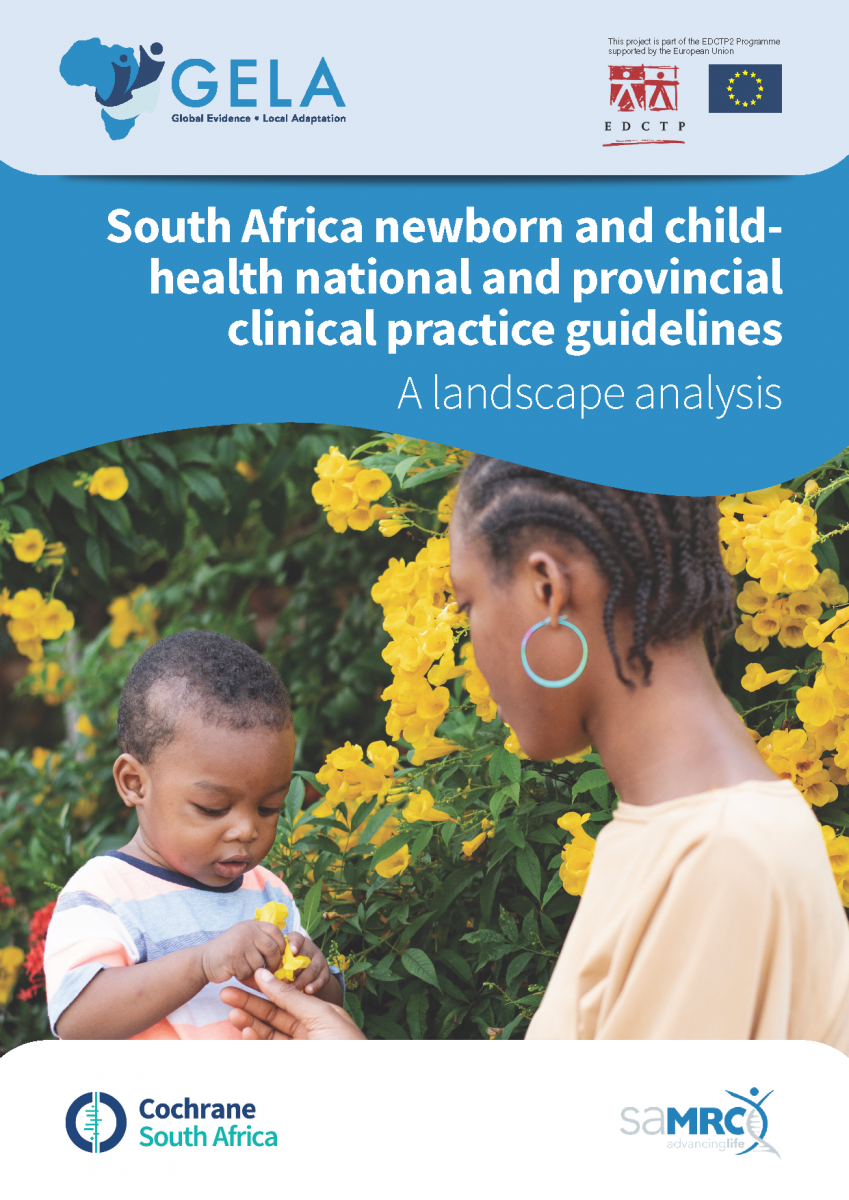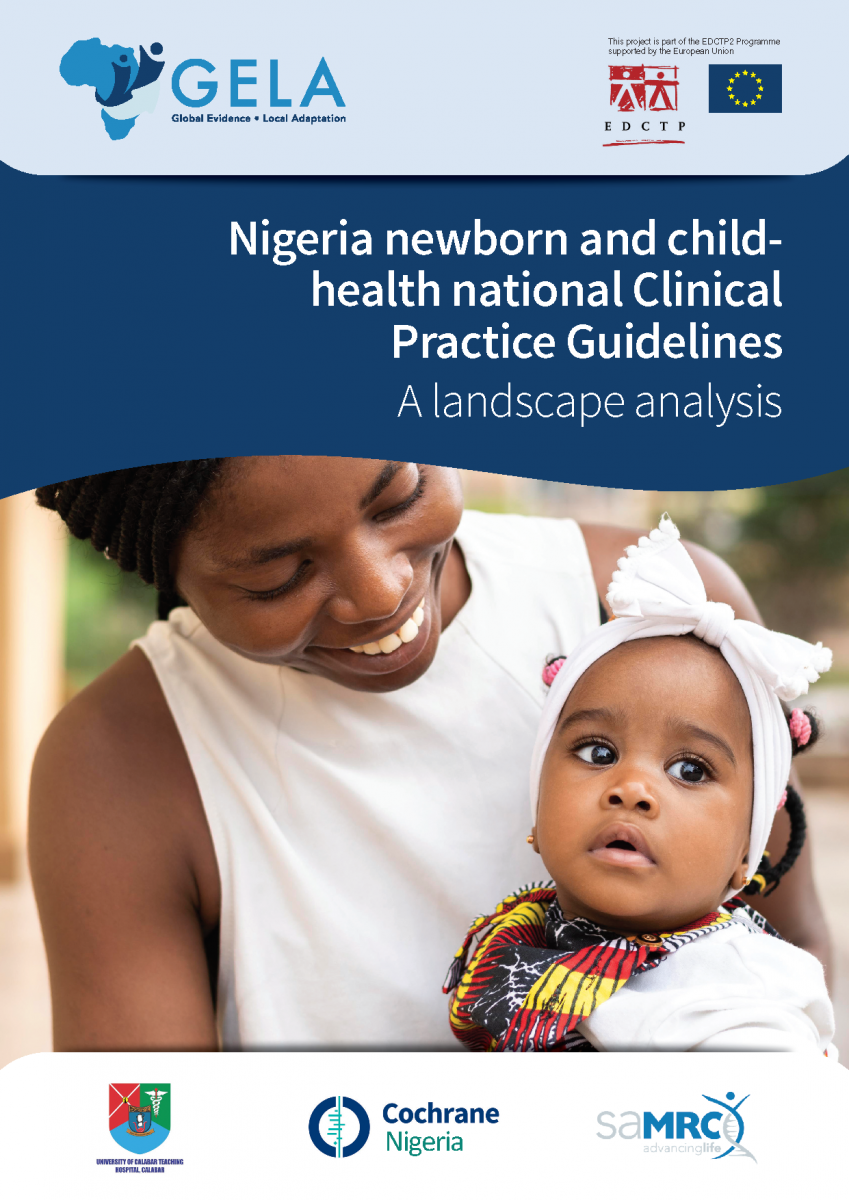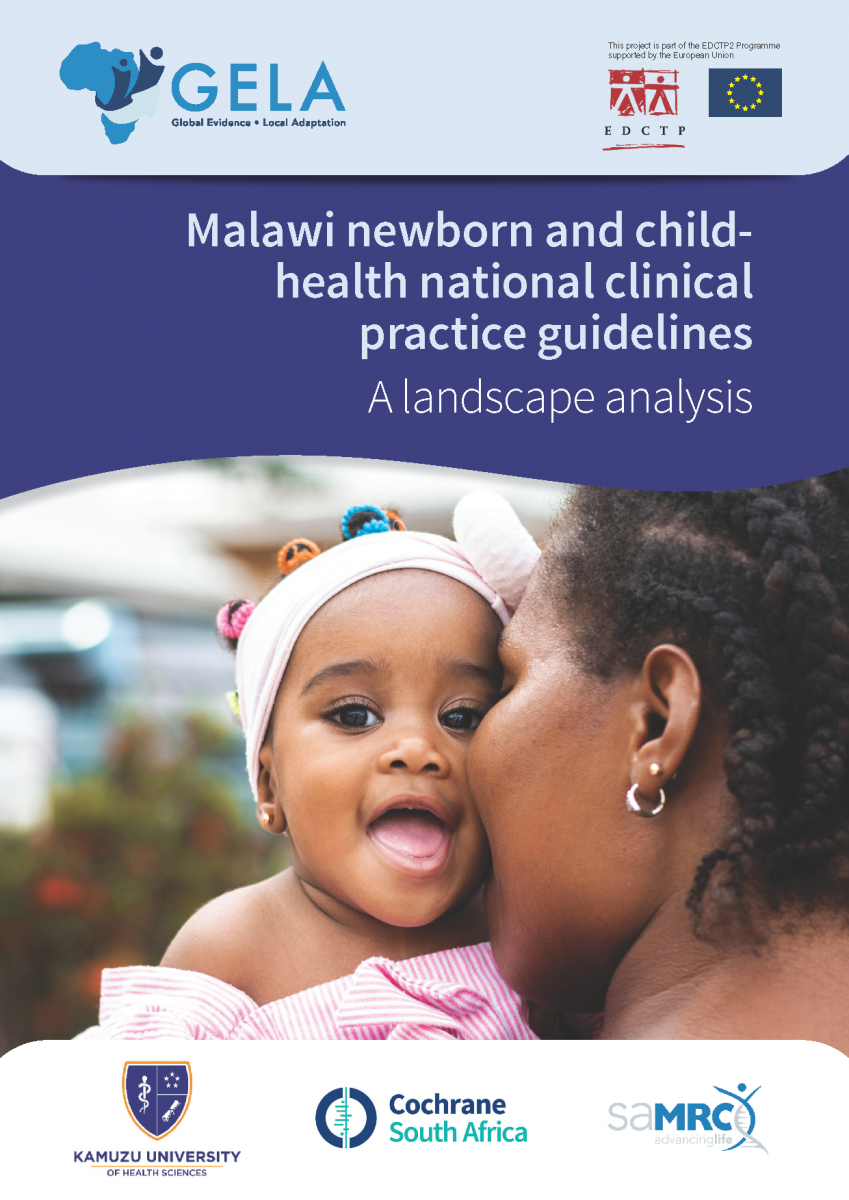This priority setting project is part of the larger GELA project. The purpose of the GELA project is to maximise the impact of research on poverty-related diseases through enhancing decision-makers’ capacity to use global research to develop locally relevant guidelines for poverty-related diseases (PRDs) in the field of newborn and child health. The project will support decision-makers in Malawi, Nigeria and South Africa, and build on and add value to the large-scale programme of child health clinical practice guideline (CPG) development lead by the World Health Organization (WHO), with adaptation and implementation lead by WHO Afro regional office and national ministries. The first step in this process is to identify priorities for guidance regarding PRDs in the field of newborn and child health, which is what this project aims to do. Access the Participant information sheet here
To inform the priority setting process and clinical practice guideline capacity needs, we conducted a landscape analysis of clinical practice guidelines for newborn and child health in South Africa, Malawi and Nigeria. The aim of this landscape analysis was to assess methodological and reporting quality of publicly available clinical practice guidelines published within the last 5 years (2017 – 2022) and identify gaps in topics and content covered. Our findings highlighted the importance of ongoing efforts to strengthen capacity and support clinical practice guideline development with collaboration between policymakers, researchers and all relevant stakeholders. We further highlight gaps in current topics or conditions that contribute to the burden of diseases in newborn and child health in each country, including malnutrition, neonatal and congenital disorders, as well as the coexistence of conditions.
Access the reports of these landscape analyses below




